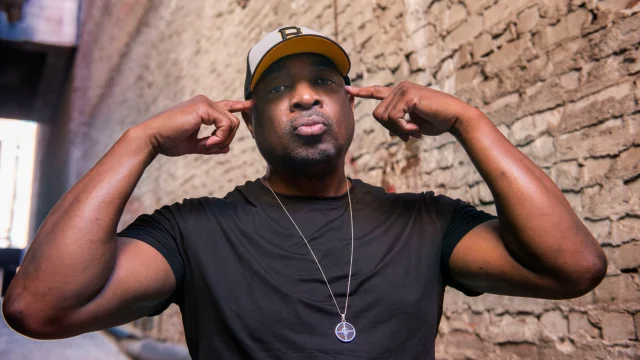One of the first voices heard in Fight The Power: How Hip Hop Changed the World was Chuck D of rap group juggernaut Public Enemy. This was no surprise: the four-part documentary is co-produced by the rapper, acclaimed for his pummelling and politicised twist on the genre and this four-part documentary series was made in his image.
The focus of Saturday’s episode was on hip hop as a vehicle for social change. This was a political film rather than one merely about music. It used rap as a starting point to explore the African American experience through years of prejudice and pain.
To that end, Chuck D had assembled an impressive line-up of interviewees with first hand knowledge of the power of rap. They included LL Cool J, KRS-One and Darryl McDaniels of Run DMC.
The emphasis throughout was on the lived experience of African Americans in the decades that followed the Civil Rights era in the sixties. The goal was not to celebrate hip hop as a form of purely sonic expression but to explore its potency as a tool for political protest.
As a result, Fight The Power was fascinating. Cutting though music doc cliché, it delivered a street-level portrait of rap music’s formative decades. The opener investigated how Martin Luther King’s campaign for equality was followed in New York by “white flight”: The city was abandoned by the powers that be and Black people were left behind, too. “We saw institutions around us crumbling” said KRS-One.
It was against this backdrop of stratified poverty that hip-hop emerged – first as an offshoot of disco, then as a distinctive art form. “We were asking questions that weren’t getting answered,” said Chuck D. “It bled through to the music.”
KRS-One’s 1993 banger “Sound of Da Police” protested state-backed violence (“Your laws are minimal cause you won’t even think about lookin’ at the real criminal”), foreshadowing the Black Lives Matter movement decades later.
What was surprising about the picture of 1970s and 1980s New York in Fight the Power was how lenient cops were towards African Americans. This wasn’t because the authorities were more enlightened than in later years. It was because New York had been left to rot. “The police were not as attentive. If no one’s stopping me, I can get away with a lot,” remarked author and journalist Nelson George.
That all changed, we saw, when Ronald Reagan was elected President in 1980. Benign neglect was replaced by class warfare. Welfare programmes were slashed and the decline in the American economy was pinned on the black community, whom Reagan, with appalling cynicism, blamed for gang violence and the drugs epidemic. “From the minute Ronald Reagan was elected, the United States was in a bad situation,” said Chuck D.
Hip hop’s response was to become more politicised – starting in 1982 with the sensational “The Message” by Grandmaster Flash and the Furious Five.
The song was a bruising snapshot of everyday life for the New York black community. “It’s like a jungle sometimes,” it began. “It makes me wonder how I keep from going under”. Until then, rap music had been about escapism and leaving behind your troubles. “The Message” opened a new chapter.
“’The Message’ was the culmination of the last 25 years thrust on black folk,” said Chuck D. “’The Message’ actually talked about something,” agreed Melle Mel, the rapper on the track. “It had the same feeling as a Bob Dylan record or a Marvin Gaye record.”
The story of what happened next will be told in future episodes (where Eminem is among the contributors) and there is a lot left to tell. But Fight The Power is off to a gripping start, and with Chuck D overseeing the project.
![]()
![]()


